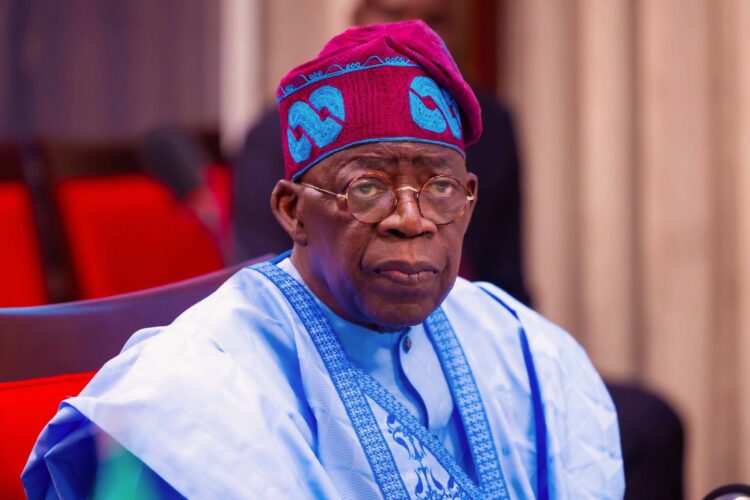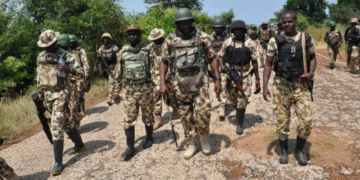In a bid to find solutions to the economic challenges the country is facing, especially high inflation rate and foreign exchange crisis, President Bola Ahmed Tinubu, recently, constituted an Economic Advisory Committee with a mandate to suggest ways to rejuvenate the economy.
The committee comprises supposed experts, technocrats, captains of industry, economists and, ill-advisedly, government officials and political actors. The task before the committee is critical and urgent, considering the parlous economic situation in the country. That, essentially, makes the job before the committee one that demands undivided attention.
It goes without saying that Nigeria is facing a myriad of economic problems worsened by the removal of fuel subsidy and the floating of the Naira. Available record indicates that the nation is battling with a 29.90 per cent inflation rate almost a 30-year peak, and with an alarming food inflation of 35.41 per cent.
The importance of an economic advisory committee, at this point, cannot be overemphasized. The question, however, is whether members of the committee, as presently constituted, have the intellectual depth to appreciate the enormity of the assignment and strive to rise above the din and meet the gargantuan public expectations before them.
Already, discerning Nigerians are raising questions about the suitability of some of the members of the committee who are alleged to have vested interests that could impinge on the integrity of their position on matters before them.
The anxiety among Nigerians is that the mindset of most members of this team is already familiar, raising the question as to whether they would be able to rise above their petty interests and allow the common wellbeing of Nigerians to dictate their attitude and thinking. Would they be able to subsume their business and political affiliations within the larger national view which demands that they attend to the common good?
Expectedly, the role of the committee is to advice and guide the government on matters relating to economic issues and policies that affect the country’s growth and development. The committee members include active operators of the economy such as Aliko Dangote, Abdul Samad Rabiu, Tony Elumelu, economist Bismark Rewane, and others from the Organized Private Sector. State governors, including Charles Soludo (Anambra) and Dapo Abiodun (Ogun), as well as the Vice-President and relevant ministers, are part of the committee.
At present, the committee is facing a daunting task. It is coming on board at a time that most Nigerians are beginning to run out of patience with the activities of the government some of which appear not to be sufficiently pro-people. That the global economy is in a state of flux is common knowledge as many countries struggle to recover from the cumulative effects of the COVID-19 pandemic and the war in Ukraine and elsewhere. But these are not the stories that Nigerians want to hear amid rising inflation and food crisis.
In our candid opinion as a newspaper, the economic advisory committee needs to come up with a comprehensive plan to help the country recover from the current economic crisis. This plan should be focused on creating jobs, boosting economic growth, and stabilizing the economy. The committee needs to look at ways to support businesses, particularly small and medium-sized enterprises, which are supposed to be the backbone of the economy.
Again, the committee must be in a hurry because there is really no time to waste. As part of the way forward, we urge the committee to quickly analyze and develop guidelines on economic development and trends, review federal government policies and programs to ensure they continue to promote sound economic direction, recommend economic indices that will benefit Nigerians and together with relevant government agencies, help steer the country’s economic recovery and ensure that the nation builds back better and faster.
The committee’s primary responsibility is not to merely echo optimism but to devise concrete plans for the government. Addressing inflation and stabilizing the naira are urgent tasks. And at the end of the day, their recommendations should focus on reducing the cost of governance, especially in an economy struggling to breathe.
What this implies is that the committee has to work closely with the government to identify areas where investment is needed. Infrastructure development is one such area that requires immediate attention. The committee is obligated to identify key projects that will create jobs and stimulate economic growth.
It is pertinent to point out to the committee the urgency of focusing on reducing the country’s dependence on imports. The current economic crisis has clearly highlighted the necessity of self-sufficiency, and the committee must work on ways to promote local production and manufacturing. This will create jobs and reduce the country’s reliance on foreign goods. And what is more, it will boost foreign exchange earnings.
We are compelled to remind the committee to be selfless in its service to the nation. The members must provide practical solutions to steer Nigeria away from economic turmoil and enunciate policies that promote stability and growth. The committee owes itself and the nation as a whole a profound duty to justify its existence. This is not about political expediency but a compelling moral obligation.










